
March 12, 2025
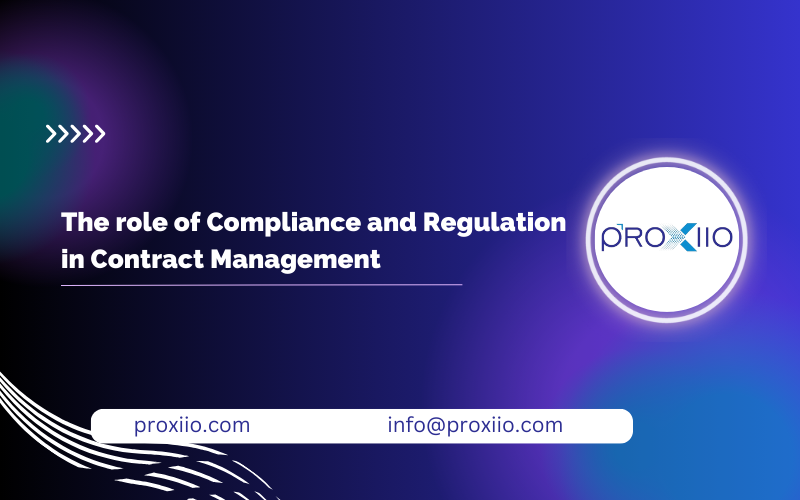
Contracts
form the backbone of critical business relationships — vendor agreements,
client partnerships, employee contracts, and more. Effective contract
management not only streamlines business operations but also mitigates risks
related to non-compliance, which can lead to financial penalties, legal
battles, and reputational harm.
In
today’s dynamic regulatory environment, businesses face increasing challenges
in ensuring contract compliance. The complexity stems from the need to adhere
to multiple layers of legal requirements, industry regulations, and internal
policies. According to a 2023 survey by the International Association for
Contract & Commercial Management (IACCM), 78% of organizations
reported facing contract-related compliance issues due to evolving
regulations[1].
Additionally,
a 2024 study by PwC found that 45% of compliance officers view contract
mismanagement as a top operational risk, while 58% of legal teams reported that manual
contract processes slow down their compliance checks by an average of 30%[2]. As regulations grow
more intricate, the need for cutting-edge contract management solutions has
never been more pressing.
1. Understanding and adapting Relevant Laws: Keeping up with ever-changing
laws is essential for businesses. For instance, the implementation of General
Data Protection Regulation (GDPR) in the European Union forced companies
worldwide to revamp data-related clauses in their contracts. Similarly, the
rise of AI regulations, such as EU's AI Act, has prompted companies to incorporate
clauses addressing algorithm transparency and bias mitigation in vendor
agreements.
2. Managing Compliance Across Jurisdictions: Multinational
companies often face challenges in complying with region-specific regulations.
A study by Deloitte highlighted that 62% of multinational corporations struggle with
cross-border contract compliance[3].
Emerging markets, with their fluid regulatory environments, necessitate rapid
adaptation of contract terms to avoid legal pitfalls.
3. Compliance with Legal Requirements: Contracts must meet statutory
requirements, such as mandatory terms and conditions. Failure to incorporate
these can render agreements invalid or expose businesses to legal claims. The
rise of environmental, social, and governance (ESG) regulations has added new
layers of complexity — 41% of companies now include sustainability clauses in their
contracts to comply with these mandates.
4. Litigation and Legal Consequences: Non-compliance often
results in breach-of-contract lawsuits. According to the American Bar
Association, 30%
of corporate litigation is driven by contract disputes, resulting in
costly settlements and operational disruptions[4].
In 2023, a major tech company faced $50 million penalty for failing to comply
with cybersecurity contract requirements.
[1] International Association for Contract & Commercial Management (IACCM) Survey, 2023.
[2] PwC’s Compliance and Risk Report, 2024
[3] Deloitte’s Cross-Border Compliance Report, 2023
[4] American Bar Association’s Corporate Litigation Insights, 2023
5. Reputational Risk: Publicized breaches can erode trust.
A notable example is the 2022 supplier contract violation scandal, where a
Fortune 500 company lost 15% of its stock value following non-compliance
allegations. In a social media-driven world, 63% of consumers claim they would
reconsider their loyalty to a brand following a publicized contract breach.
1. Regular Contract Reviews: Using contract
management platforms with pre-approved templates ensures alignment with legal
mandates. Automated tools allow dynamic contract updates, minimizing human
error and integrating AI contract review software can cut contract review time
by 60% while enhancing accuracy.
2. Risk Assessments: AI-powered analytics can identify high-risk
clauses and non-standard terms in contracts. Studies show that companies using risk
assessment tools have reduced compliance breaches by 40%. Predictive
analytics tools can now forecast potential contract risks based on historical
data, enabling businesses to adjust their strategies proactively.
3. Automated Compliance Tracking: Implementing
contract lifecycle management (CLM) software ensures timely alerts for key
milestones such as renewal dates, obligations, and penalties, reducing the risk
of oversight. Advanced blockchain-based contract solutions are also gaining
traction, ensuring tamper-proof audit trails and automatic execution of
contract terms via smart contracts.
4. Improved Contract Visibility: A centralized
contract repository enhances accessibility and transparency, ensuring quick
identification of potential compliance gaps. AI-powered dashboards offer
real-time insights into contract performance and potential risks.
Proxiio
offers robust contract management solutions designed to streamline compliance
processes. Our key features include:
·
Smart Templates: Auto-updated
templates aligned with current regulations.
·
Risk Assessment Tools: AI-driven insights
to flag risky clauses.
·
Automated Tracking: Real-time compliance
alerts and audit trails.
·
Centralized Hub: A secure,
cloud-based repository for easy contract access.
·
Predictive Analytics: AI-powered forecasting
to assess risks and recommend proactive contract adjustments.
·
Blockchain Integration: Immutable contract
records and automated execution of key contract terms.
Compliance
and regulation play a pivotal role in shaping effective contract management.
Businesses must embrace technology, conduct regular compliance audits, and
adopt automated systems to mitigate risks. With Proxiio’s advanced contract
management solutions, organizations can confidently navigate the complexities
of the regulatory landscape, safeguarding their legal standing and operational
integrity.
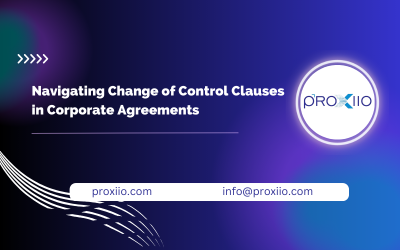
March 05, 2025
Navigating Change of Control Clauses in Corporate AgreementsIn corporate transactions, one of the most critical yet often overlooked aspects of an agreement is the Change of Control (“COC”) clause. This provision governs what happens when there is a significant shift ...
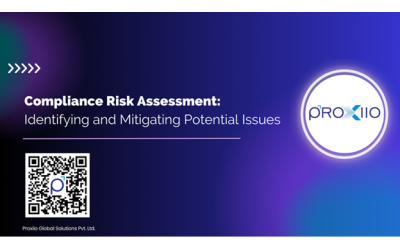
May 21, 2025
In today’s rapidly evolving regulatory environment, compliance is no longer a static checklist—it’s a dynamic, ongoing process. A compliance risk assessment serves as a cornerstone for building a strong compliance program, helping organizations proactively identify, evaluate, and mitigate legal and ...

March 11, 2024
Proxiio’s partnership with Relativity provides access to many technology-assisted review tools that are incorporated into the RelativityOne platform. One of the most widely used tools, Active Learning, serves as a technology-aided solution designed to efficiently analyze large datasets and predict ...
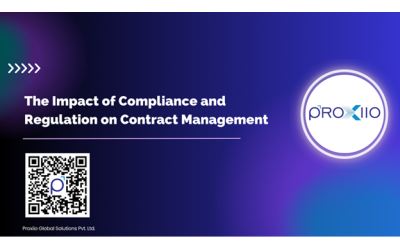
May 21, 2025
In an era defined by increasingly complex regulatory frameworks and heightened scrutiny, Contract Management has evolved from a back-office administrative task into a critical risk management function. For modern enterprises—particularly in highly regulated industries—maintaining compliance throughout the contract lifecycle isn’t ...
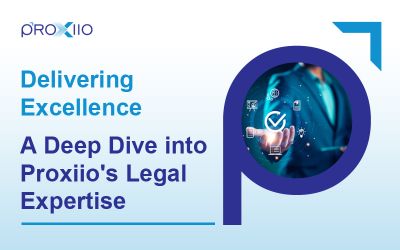
April 15, 2024
In today’s complex global legal landscape, having a dedicated and experienced team behind you can make a difference in the results your organization achieves. At Proxiio, we take pride in our exceptional legal team, who bring a wealth of qualifications, ...

March 12, 2024
“You can have a job if you wanted to have a job for personal satisfaction. But the AI would be able to do everything,” quoted Elon Musk which squarely summarizes the challenge that AI could pose to all professionals including ...